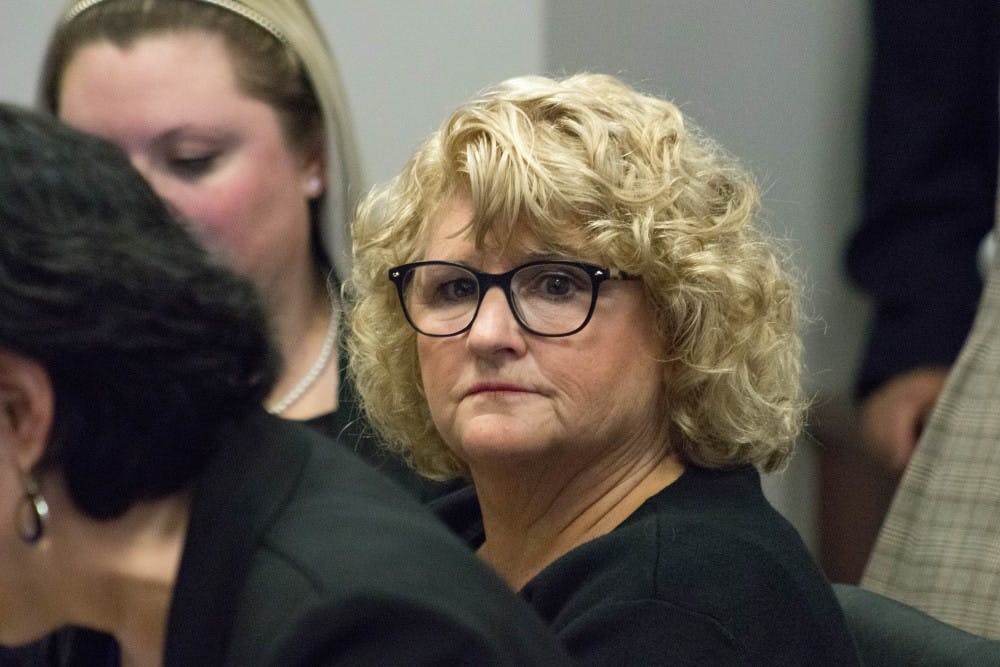The prosecution's motion to place a protective order on discovery in the case of former head MSU gymnastics coach Kathie Klages was denied Wednesday in Ingham County Circuit Court.
This motion, denied by Judge Joyce Draganchuk, would have placed significant restrictions on the defense's access to evidence that contains over 600 interviews relevant to the case, according to First Assistant Attorney General William Rollstin.
Klages is charged with lying to a police officer during an investigation into MSU's handling of the sexual abuse of ex-MSU and USA Gymnastics doctor Larry Nassar. She faces one misdemeanor charge and one felony charge.
Rollstin told the judge the order was needed to protect identifying information of individuals, including the names, dates of birth, addresses and phone numbers of survivors of Nassar's abuse. He said survivors should be entitled to the protection of their personal identifying information in any case.
"Personal identifying information is valuable to individuals that commit financial crimes: fraud, welfare fraud, identity theft, things like this," Rollstin told the judge. "I think it's incumbent on all of us to try protect that personal identifying information of the 600-plus witnesses."
Protective orders are usually limited to federal court and cases of financial crime, according to Klages’ attorney Mary Chartier. She told the court she doesn't believe a protective order on discovery is necessary.
"We have no interest, nor have we shown that we will disseminate personal identifying information to anyone," Chartier said. "This is no different than any other criminal case that comes before court. Any (criminal sexual conduct) case, any murder case, protective orders are not a regular part of the discovery process."
Draganchuk rejected the protective order, but agreed to sign a court order preventing information within the discovery from becoming public.
"There has to be a finding of good cause and the court has to consider such things as the party's interest in a fair trial, the risk to any person of harm, undue annoyance, intimidation, embarrassment or threats, risk that evidence would be fabricated and the need for secrecy regarding the identity of informants. The people haven't really established good cause. They've not put for any particular reason, other than a threat of identity theft," Draganchuk said. "There's no indication that the defendant in this case is going to commit identity theft."
The original motion for discovery took place Dec. 19, 2018, when the Attorney General's office was slated to provide information for discovery within 14 days. On Wednesday, one week past that time frame, Rollstin said information would be delivered to the defense within three or four days.
Chartier said she believes the prosecution is not acting in good faith with the proposal of the protection order, and is instead impeding the defense's ability to prepare for trial.
The court discussed the possibility of an April 15 trial date.
"We have been requesting this information for months and I feel like this is a tactic by the government to delay for months," Chartier said. "Now we only have three months to try and get ready for trial, as opposed to possibly six months that we would have had if it had been given to us when we first started to talk about it."
Draganchuk agreed to schedule a status conference — likely in the first week of February — where both sides could discuss setting a trial date.
Support student media!
Please consider donating to The State News and help fund the future of journalism.
Discussion
Share and discuss “Prosecution's call for limits on evidence in Klages case denied” on social media.








